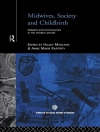Kenya’s white settlers have been alternately celebrated and condemned, painted as romantic pioneers or hedonistic bed-hoppers or crude racists. The souls of white folk examines settlers not as caricatures, but as people inhabiting a unique historical moment. It takes seriously – though not uncritically – what settlers said, how they viewed themselves and their world. It argues that the settler soul was composed of a series of interlaced ideas: settlers equated civilisation with a (hard to define) whiteness; they were emotionally enriched through claims to paternalism and trusteeship over Africans; they felt themselves constantly threatened by Africans, by the state, and by the moral failures of other settlers; and they daily enacted their claims to supremacy through rituals of prestige, deference, humiliation and violence. The souls of white folk will appeal to those interested in the histories of Africa, colonialism, and race, and can be appreciated by scholars and students alike.
Tabela de Conteúdo
1. Introduction: The souls of white folk
2. Race, civilization and paternalism
3. Prestige, whiteness and the state
4. Chivalry, immorality and intimacy
5. The law and the lash
6. Conclusion
Select Bibliography
Index
Sobre o autor
Brett L. Shadle is Associate Professor of History and ASPECT at Virginia Tech












